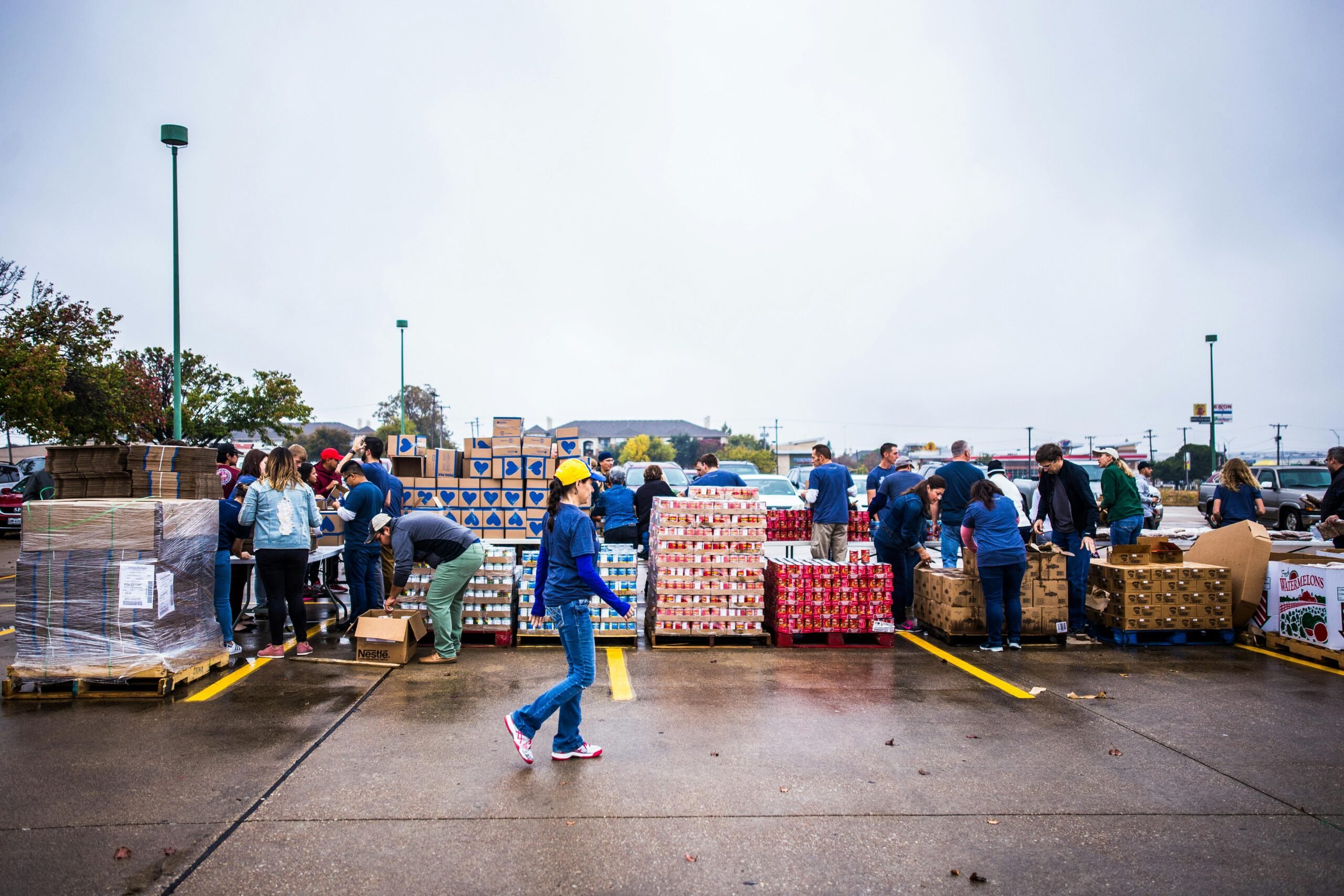
Over five months ago, Hurricane Helene devastated western North Carolina. Seemingly overnight, the region went from being viewed as a climate haven to experiencing the “deadliest mainland hurricane since Katrina.” In North Carolina alone, over 100 people lost their lives as a result of the storm, many from drowning or the result of complications from environmental exposure. In the aftermath, the region was left with significantly fewer tress, making it more vulnerable to future natural disasters.
Though the region hadn’t experienced a disaster of this magnitude since Asheville’s “Great Flood” of 1916—which was described as “one of the worst natural disasters in the recorded history of western North Carolina”—BeLoved Asheville, a nonprofit focusing on combating systemic racism and food and housing insecurity, was able to hit the ground running. Thanks, in part, to years of organizing efforts leading up to the storm, the nonprofit offered community members the support that they needed.
Nonprofits and Community
In the critical days and weeks after the storm, when thousands of community members were without power, water, and cell phone signals, BeLoved Asheville set out to check on people. They worked to get them much-needed supplies and let family members know their loved ones were okay. The group, which has existed for 16 years and already had resources like a large warehouse, box truck, and food truck, served as a hub for other nonprofits in the area, some of which began in the wake of the storm.
NPQ recently spoke with Ponkho Bermejo and Amy Cantrell, two of the organization’s codirectors about supporting the community in its recovery efforts.
“Because we have been working here in this community for more than 16 years, we already know where people in our community live. We were able to reach many, many different people that were in need—from elders to public housing to people living in mobile homes,” said Bermejo.
At the time, many of the stores in the region were also without power. BeLoved Asheville immediately began distributing food, water, diapers, and other supplies to people in need. The organization set up a system to disperse items received from New York, Texas, and other states across the country.
“Every time we received a truck, we already had a volunteer that distributes all the supplies directly to where it’s needed,” Bermejo said.
Community groups—no matter how strong—cannot meet all the need. It’s critical for the state and federal government to show up as well. Through working directly with community members on the ground, BeLoved Asheville could better understand their needs. Bermejo and Cantrell noted that at the peak post-Helene devastation, they were delivering thousands of supplies to roughly 15,000 people a day across the western North Carolina region.
The organization was also intentional about supporting those who were particularly vulnerable, such as elders and people with disabilities. They worked with a volunteer pharmacist to ensure that people could get their emergency medications and sent volunteers to help elders and those living in senior living facilities flush their toilets. This required a five-gallon bucket of water and, in some cases, a five-mile hike to reach those in need living in more remote areas.
Undoubtedly, community members and local organizations showed up for each other in the critical days, weeks, and months after this traumatic event. But community groups—no matter how strong—cannot meet all the need. It’s critical for the state and federal government to show up as well.
The Need for Government Support
Though Cantrell notes that North Carolina Governor Josh Stein, who took office in January, has prioritized increasing aid to western North Carolina and tens of billions of dollars in federal aid is expected to be made available this month, residents are continuously frustrated that aid has not come as quickly as they had hoped, partly because of delays at the federal level.
Sign up for our free newsletters
Subscribe to NPQ's newsletters to have our top stories delivered directly to your inbox.
By signing up, you agree to our privacy policy and terms of use, and to receive messages from NPQ and our partners.
The US Department of Housing and Urban Development (HUD) Secretary, Scott Turner, initially refused the $225 million relief plan drafted by the city of Asheville, saying that it includes diversity, equity, and inclusion (DEI) criteria in its prioritization of aid for those who were most impacted by the storm. The plan has since been revised.
“I think we need to figure out ways for resources to be more accessible because we are talking about people in trauma.”
Further, in recent months, news outlets have raised awareness about cuts to FEMA resources and the possibility that the agency may be dismantled entirely. As a group working directly with impacted individuals to help them apply for FEMA and navigate how it works, BeLoved Asheville has seen firsthand how navigating these resources can be daunting.
“In the middle of the tragedy of losing your house, your car—many people lost their business—they have to be constantly going to look for FEMA and talk to FEMA to try to figure out their situation,” Bermejo said.
He cites stories of people who were denied FEMA resources six or seven times but were finally able to access the resource after applying the final time. He believes continuously applying takes energy and time that many people simply do not have. After being denied resources several times, some people simply do not go back. For many, having to apply for benefits several times and still be denied is a distressing experience that adds to the trauma they are already experiencing.
“I think we need to figure out ways for resources to be more accessible because we are talking about people in trauma. The victims of the situation have to navigate going to ask for help and still trying to continue their life in whatever way they can…cleaning their house, cleaning their streets—and on top of this, figuring out how they can receive the help they need,” he said.
“We need particularly state and federal folks to look at systemic solutions that are large scale.”
Additionally, at both the state and federal levels, BeLoved Asheville is advocating for support around the housing crisis. Bermejo and Cantrell note how, in the wake of the storm, some people either lost their jobs or have been unable to work full hours and are now facing eviction. In one case, a person only made $400 for a month’s work but was still expected to pay their rent.
In some of the worst instances, people who lost their entire homes are still expected to make mortgage payments. Given this crisis, BeLoved Asheville hopes that the state and federal government will suspend rent and mortgage payments to offer community members some relief.
“There’s a lot that doesn’t make a whole lot of sense if you’re not here on the ground, but that is the reality, so we need particularly state and federal folks to look at systemic solutions that are large scale in that way,” Cantrell said.












